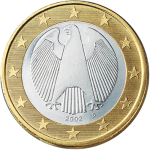This morning my daughter was playing with her parrot feathers (a gift from a friend).
I told her: “Next time we’re at Grandma’s, I’ll show you a photo of me with a parrot on my shoulder.”
She: “Mommy, were you a pirate?”
![]()
Ahoy me hearty
Compound words
German is well-known for its compound word, which are somewhat of a cliché even to those who don’t speak the language, with famous terms such as “Donaudampfschiffffahrtsgesellschaftskapitän(smütze)” or the recently revoked law “Rindfleischetikettierungsüberwachungsaufgabenübertragungsgesetz” (no joke).
My daughter has her own category of compound words:
Fledermausschaf/Fledermaushund/Fledermaus[insert animal of the day here]
When she pretends to be an animal (sheep, dog…), the bat (Fledermaus) always remains.
Fischmaus
The other day we were visiting friends who have a cat. One of the cat’s toys was a fishing line with a toy mouse at the end. But something at the end of a fishing line (canne à pèche) should normally be a fish, hence the fishmouse. (You can’t beat a kid’s logic.)
Hélicoptère-papillon
I dare you to find out what this is. Translation: Helicopter-butterfly (Hubschrauber-Schmetterling).
Der die das – wieso weshalb warum?
The German Sesame Street opening song hasn’t changed since I watched it, even though the opening sequence has. It was the first thing that jumped to mind in connection with what I noticed a few days ago:
When my daughter speaks German, she will systematically use French articles. Mostly “la”, actually, but I haven’t made statistics. Which makes for sentences such as
“Ich bin à la Wohnzimmer!” (I am in la living room.)
Are German declinations so difficult she keeps them for last?
Also, it makes me wonder about her results in that research experiment we participated in that dealt specifically with articles and was not geared to bilinguals.
Accent?
Today we went to see French friends with kids. The parents both took German in school but admit they don’t remember much of it.
When listening to our girl, they said she seems to have a slight German accent when she speaks French. That’s something I’m in no place to judge, and her dad says he never noticed.
I however have noticed that she has a tendecy to pronounce certain German words the French way – that is, with the last syllable accented, or having trouble pronouncing the initial H (for example in “Hund”).
Where did she hear that?
Every parent, it seems, has a story of how their kid used a word or expression (usually a swearword) they weren’t supposed to know, which then begs the question: “Where did s/he hear that?”
When the word or expression in question happens to be in the minority language (ml), the field of possible candidates is much restricted, and the first in line is of course the ml parent, followed by ml grandparents and, if applicable, media such as audio or video your child might have watched or listened to.
In the last few weeks, my daughter has been telling me quite frequently, generally when I question a claim she makes, the following expression:
“Das weiß doch jedes Kind!”
Literal translation “Every child knows that!”, meaning it’s an obvious fact.
Now I’m quite confident that neither me nor my parents would say such a thing to her, nor any of the fictional characters from her DVDs or CDs, namely Pippi Longtocking, Dora the Explorer, The Little Princess, or Conni.
So now I’m asking myself, “where did she hear that?”
Counting
The other day, my daughter got this beautiful poster with the numbers from 1 to 20. Ever since we put it up on her door, she’s loved to compare the objects and, of course, count them. On Thursday, we managed to film her:
Buttons
Do you remember our initial confusion when our little girl referred to her pool noodle as “pâte” in French, where they are called “fries”?
This week we were talking about something called (I had to look up the term) “water warts” of which she unfortunately has a few, which are being treated. Since both Daddy and the doctor referred to them as “boutons” and I hadn’t been able to come up with an appropriate German term (and therefore carefully avoided the word), I wasn’t surprised when she called them “Knöpfe”.
(The German term seems to be “Dellwarzen”, by the way, which is what I am going to use henceforth. Or at least “Warzen.”)
Eagle or…
Funny that this story coincides with German National Unity Day (today, October 3rd).
My daughter and I found a Euro coin on the sidewalk. Usually it’s her who finds money, and it goes into her piggy bank (which is really a cow-y bank, but you might have guessed that). Anyway, she looked at the back of the coin, which happened to be a German one (that’s where the National Unity Day comes in).
If you’re not familiar with Euro coins, this is what it looks like:

She: “A parrot!”
Me: “Actually, it’s an eagle.”
She: “Like a bat.”
I hope the German eagle will not be offended by this comparison. Though coming from my daughter, a huge bat fan (as you’ll remember from this entry), it’s actually more like a compliment.
Hast du ein Glück!
Letzte Woche haben wir sehr gelacht:
Ich kam von der Arbeit, als unsere Tochter schon beim Nachtisch war. Sie begrüßte mich an der Tür mit einer Eiswaffel in der Hand.
Ich: “Ein Eis? Hast du ein Glück!”
Sie: “Ja, ma-ya Glück, dass Papa nicht alles Eis aufgegessen!”
Anmerkung: ma-ya ist immer noch ihr Begriff (in beiden Sprachen), der “ich bin”, “ich habe”, “ich war”, “ich hatte” oder auch nur “ich” alleine abdeckt.
I’m lucky because
Last week I had a good laugh:
I came home from work as my daughter was eating her dessert – an ice cream cone. I said “An ice cream? You’re lucky!” To which she replied: “Yes, I’m lucky that Daddy hasn’t eaten them all!”
Copyright © Cowplanet. All rights reserved.
